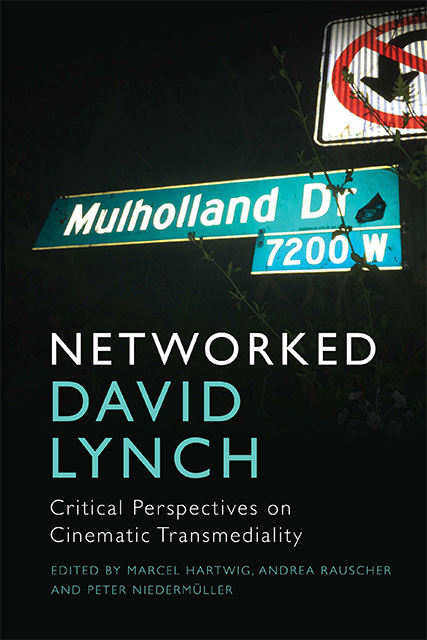Book contents
- Frontmatter
- Contents
- List of Figures
- Notes on Contributors
- Introduction: Entering Lynchtown
- Part I Approaching Intertexts
- Part II Twin Peaks as Transmedia Network
- Part III David Lynch's Transmedia Aesthetics
- Part IV Videographic Criticism of David Lynch’s Cinematic Work
- Conclusion: Leaving Lynchtown
- Index
Chapter 1 - Visits Paid to the ‘Imaginary Museum of Musical Works’: David Lynch and the Musical Canon
Published online by Cambridge University Press: 19 October 2023
- Frontmatter
- Contents
- List of Figures
- Notes on Contributors
- Introduction: Entering Lynchtown
- Part I Approaching Intertexts
- Part II Twin Peaks as Transmedia Network
- Part III David Lynch's Transmedia Aesthetics
- Part IV Videographic Criticism of David Lynch’s Cinematic Work
- Conclusion: Leaving Lynchtown
- Index
Summary
In her seminal book The Imaginary Museum of Musical Works, the philosopher Lydia Goehr argues that the musical work is not a timeless concept but a historical one that originated in Western Europe at the border between the Enlightenment, German Idealism and Romanticism. Beethoven thus becomes, as it were, the prototype of a composer who does not simply present music but rather musical works. Accordingly, this first chapter will focus on such works from the Western canon (‘serious music’ as one could put it, following Adorno (1962: 39)), as they were used in the films by David Lynch. The question of whether Lynch's activity as a sound designer and musician in return might have become canonical is beyond the scope of this paper.
For a long time, it was a mark of quality that film music was written specifically for each film. Stanley Kubrick's 2001: A Space Odyssey as well as Dennis Hopper and Peter Fonda's Easy Rider famously deviated from this standard. There is an important difference between these two forms of film music. In the first traditional case, one experiences music as something new, when watching the film for the first time and the film itself stays the main mediator by which the music may be heard and experienced. In the second case the situation is often reversed; the viewer might already be familiar with the music in other contexts and thus will bring their personal connotations to the understanding of the audiovisual sensation (Cormick 2006: 19–30; see also Derrida 1990: 24–5).
In his use of music, Lynch may not be compared to Kubrick. Ever since 2001 Kubrick had almost exclusively been using Western art music in personally selected recordings as music for his films. This became a stylistic feature as well as an individual trademark (the only exception being Full Metal Jacket, where the pre-existing pop soundtrack represents the sonic world of the young soldiers in Vietnam). Even though Lynch chooses his sounds and music from a wider variety of sources, he also goes back to Western art music again and again.
- Type
- Chapter
- Information
- Networked David LynchCritical Perspectives on Cinematic Transmediality, pp. 13 - 27Publisher: Edinburgh University PressPrint publication year: 2023



